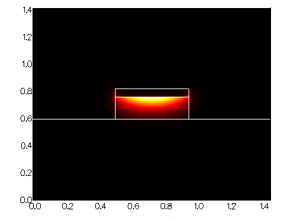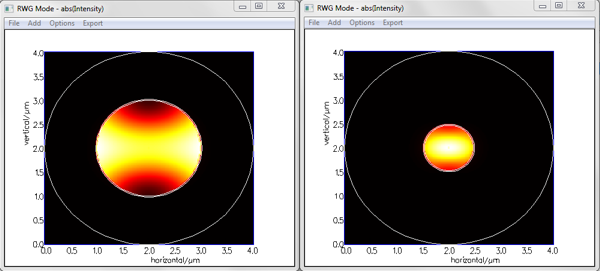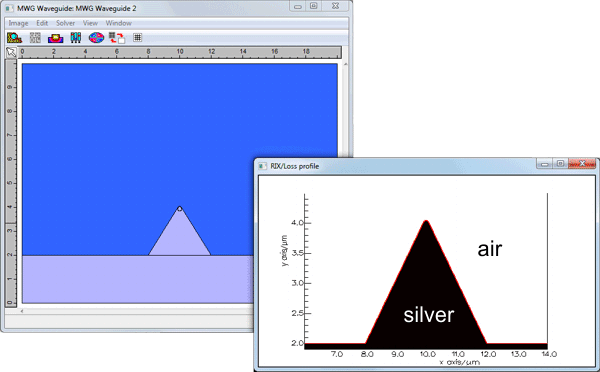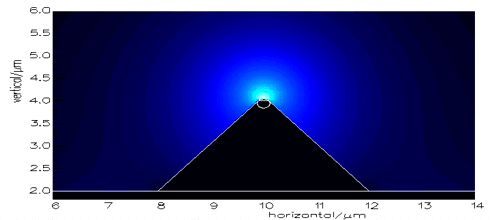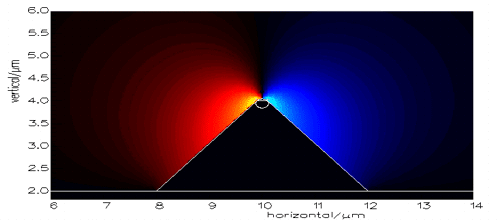FIMMWAVEA powerful waveguide mode solver |
    |
Surface Plasmon ModesSimulation with FIMMWAVE softwarePlasmonics is a field of growing interest in photonics. In terms of numerical modelling, the simulation of surface plasmons requires the use of rigorous complex and fully vectorial algorithms. FIMMWAVE includes numerous mode solvers that can easily and accurately calculate surface plasmon modes supported by metallic structures: the complex FEM and FDM Solvers in Cartesian coordinates, and the complex FDM Fiber Solver in cylindrical coordinates. Surface plasmon mode in a silicon waveguideYou can see below the intensity profile of the fundamental TM-like mode of a silicon rib waveguide with a metal layer on top of the silicon core. This mode was calculated with the complex FEM and FDM Solver; both solvers were able to reach the same result, the FEM Solver being more efficient. The solvers allow you to calculate the mode losses, effective indices, field profiles, dispersion etc. and to study how these vary when you scan the wavelength of design parameters.
Surface plasmon modes in a metal-coated SNOM fiberHere we show the intensity profile of the fundamental HE11 mode of a SNOM fiber probe: a glass fiber coated with a 22nm layer of gold. The modes were calculated with the complex FDM Fiber Solver for radii of 1um and 300nm at a wavelength of 1.55um. You can see here how FIMMPROP can be used to model propagation in a tapered SNOM fiber.
Surface plasmon mode of a metal antennaIn this case the complex FEM Solver is used to calculate the mode supported by the rounded tip of a triangular silver antenna in air. The structure is shown below; the triangle has a base length of 4um and a height of 2um.
For a wavelength of 1.55um the structure only supports one guided mode of hybrid TE/TM polarisation, of effective index 1.0081 and mode loss 85 cm-1. The field profiles for this mode are shown below.
More publicationsClick here to find publications that include FIMMWAVE simulations of surface plasmon waveguides on Google Scholar.
|

